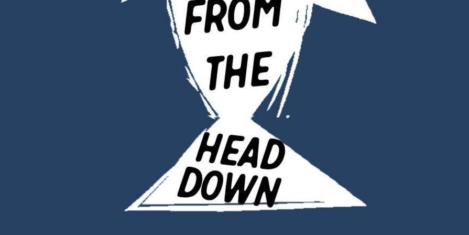January 26, 2018
If you are flourishing under a psychopath boss, it may be because you are a psychopath too
 It’s still perfectly possible to flourish under a psychopath boss, provided you are one too, according to new research that found the people best placed to cope with a psychopathic manager are those who are psychopaths too; largely because they are not as upset at the bad treatment. In the workplace, employees respond differently to abusive management styles, in part due to their varying levels of psychopathy, according to a new study from the University of Notre Dame. Certain types of psychopaths actually benefit and flourish under abusive bosses, according to Are ‘Bad’ Employees Happier Under Bad Bosses? Differing Effects of Abusive Supervision on Low and High Primary Psychopathy Employees. The study is published in the Journal of Business Ethics by Charlice Hurst, assistant professor of management in Notre Dame’s Mendoza College of Business.
It’s still perfectly possible to flourish under a psychopath boss, provided you are one too, according to new research that found the people best placed to cope with a psychopathic manager are those who are psychopaths too; largely because they are not as upset at the bad treatment. In the workplace, employees respond differently to abusive management styles, in part due to their varying levels of psychopathy, according to a new study from the University of Notre Dame. Certain types of psychopaths actually benefit and flourish under abusive bosses, according to Are ‘Bad’ Employees Happier Under Bad Bosses? Differing Effects of Abusive Supervision on Low and High Primary Psychopathy Employees. The study is published in the Journal of Business Ethics by Charlice Hurst, assistant professor of management in Notre Dame’s Mendoza College of Business.

















 A series of reports published in the past few days highlight the challenges faced by Britain’s disabled workers. The studies claim separately that disabled workers are keen to work but are less likely to be in employment and may be hiding disabilities from employers, are paid less when they are in work and that many employers do not feel they are well equipped to deal with the needs of disabled staff. The first study from Reed in Partnership and Disability Rights UK found that one in ten employers do not feel able to support a disabled employee. Meanwhile research from the Equality and Human Rights Commission (EHRC) found that employees who experience mental ill-health earn up to 42 per cent less than colleagues. A third report from Citizen’s Advice found that 40 percent of disabled people would like to work but can’t find a job. And finally a report from RIDI claims that many people applying for jobs may be hiding their disability from employers.
A series of reports published in the past few days highlight the challenges faced by Britain’s disabled workers. The studies claim separately that disabled workers are keen to work but are less likely to be in employment and may be hiding disabilities from employers, are paid less when they are in work and that many employers do not feel they are well equipped to deal with the needs of disabled staff. The first study from Reed in Partnership and Disability Rights UK found that one in ten employers do not feel able to support a disabled employee. Meanwhile research from the Equality and Human Rights Commission (EHRC) found that employees who experience mental ill-health earn up to 42 per cent less than colleagues. A third report from Citizen’s Advice found that 40 percent of disabled people would like to work but can’t find a job. And finally a report from RIDI claims that many people applying for jobs may be hiding their disability from employers.















December 5, 2017
How do you really go about creating a great place to work?
by Jo Sutherland • Comment, Wellbeing, Workplace design
The topic of workplace wellbeing is becoming increasingly prevalent. And for good reason. In the UK, 45 million working days are lost due to stress, anxiety and depression and the Chartered Institute of Personnel and Development (CIPD) Absence Management survey reveals that over two fifths of organisations have seen an increase in reported mental health problems over the last year. What’s more, a recent government report found that up to 300,000 people leave their jobs each year due to mental health-related issues. Last month, Symposium hosted the “Workplace Wellness & Stress Forum 2017”, back for its twelfth year, to help employers step up and tackle the greatest inhibitor of growth, innovation and creativity – stress. Medical professionals have their definition of “stress”, health and safety execs have theirs, and the academic community promulgate another. Forum host Neil Shah, chief de-stressing officer of The Stress Management Society, offered a definition that resonated with the entire audience: “where demand placed on an individual exceeds their resources”.
(more…)